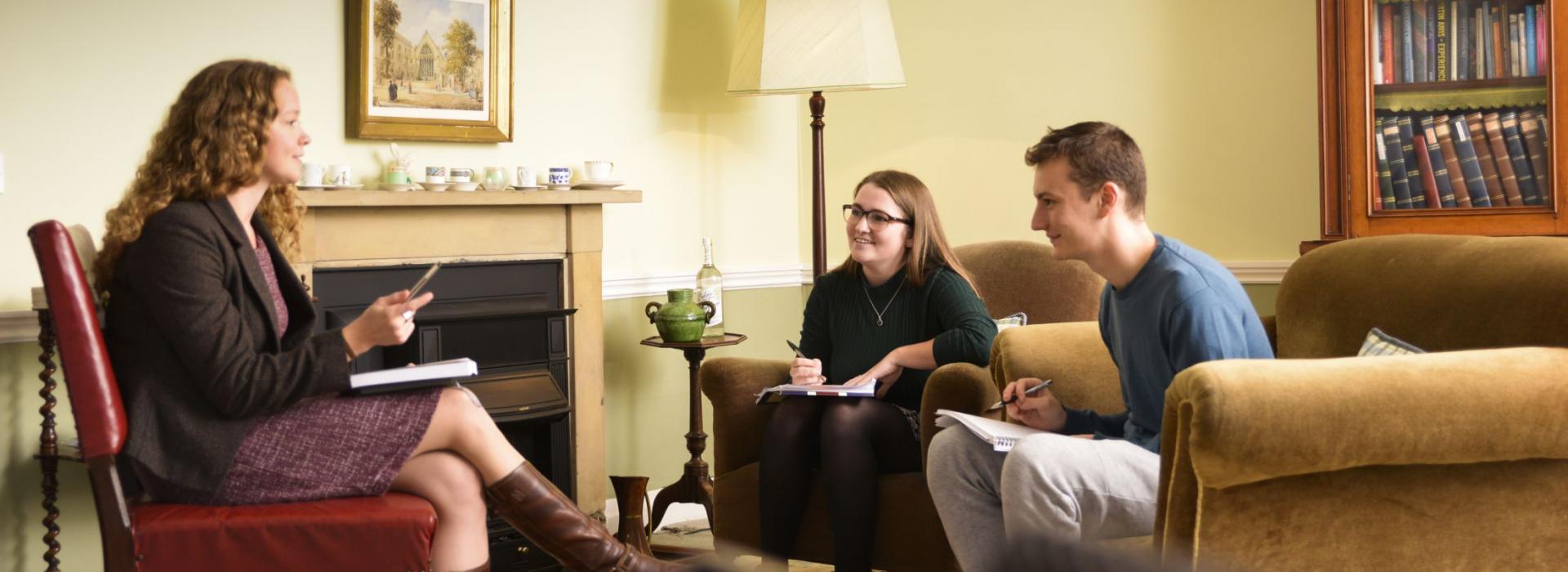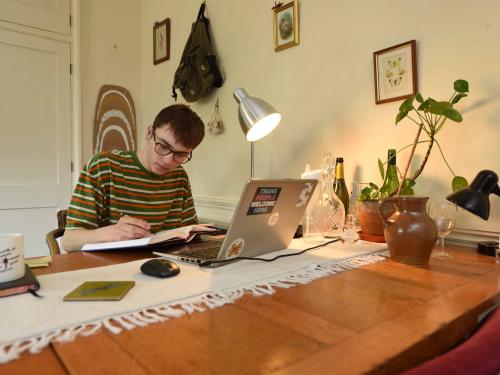Breadcrumb
History and Modern Languages
The joint degree in History and Modern Languages combines the best of both subjects. It offers the opportunity to develop near native-speaker skills in a foreign language while studying a range of papers relating to the culture and history of the relevant language area; options in some languages also include film and contemporary politics. Students will also develop analytical skills in History through a wide range of topics in British, European, American and World history, as well as the history of political thought. There will be opportunities to work with historical sources in foreign languages. As for other language students, those who take this course will spend their third year studying or working abroad, thereby immersing themselves in the language, culture, history and politics of a foreign country.
The languages available for study are:
- French (post A-Level)
- German (from scratch or post-A Level)
- Spanish (from scratch or post-A Level)
- Italian (from scratch or post-A Level)
- Portuguese (from scratch)
- Russian (from scratch or post-A Level)
Both faculties are regarded worldwide as leaders in their respective fields. The History Faculty is one of the largest in the United Kingdom and is consistently ranked as the best in research and teaching assessments. It has internationally recognised experts in all relevant fields of study. The Modern Languages Faculty is the largest in the United Kingdom and also consistently rated as one of the best. It offers an unrivalled range of courses taught by leading scholars. The library resources in Cambridge, which support teaching and research in both Faculties, are world-class; the University also has extensive collections of films in all relevant languages.
History and Modern Languages at Peterhouse
The Director of Studies is Dr Geraint Thomas.
Dr Magnus Ryan works on the history of political ideas, especially in the Middle Ages, and the relationship between law and politics between roughly 1100 and 1600; Scott Mandelbrote’s interests' range across early modern British and European intellectual history, in particular the history of scholarship and the history of science; Brendan Simms works on modern European history, with interests in the German Question, Britain and Europe, humanitarian intervention and state construction. Peterhouse has a Fellow in French, Professor Mari Jones, and an external Director of Studies in German, Dr Anita Bunyan.
History FAQs with Mr Scott Mandelbrote
Course Requirements
Applicants will be expected to demonstrate an interest in both subjects and will be assessed on their potential to succeed in them.
You are required to have studied History and the relevant language to A-Level or equivalent, unless you wish to study the language ab initio (from scratch). If you do wish to study an ab initio language, we would like to see some evidence of language ability (e.g. a modern or classical language to A level or equivalent).
If you are not taking History but are able to demonstrate that you have developed other, equivalent skills by taking other relevant subjects, or through independent subject exploration, you should contact admissions@pet.cam.ac.uk for further guidance.
The application process
As this is a course combining History and Modern Languages, candidates will share parts of their assessment with applicants for History and other parts with applicants for Modern and Medieval Languages.
We ask most applicants in History and Modern Languages to send us two examples of recent written work, which may be discussed at interview. One of the essays should be on a historical topic. For this, essays are preferable to a source-criticism exercise or similar. One should be in the language you intend to study. Candidates applying for History with an ab initio language should send two essays on historical topics. Where particular difficulties exist, we are always able to suggest other kinds of work which may help us in our assessment.
Applicants at Peterhouse will sit an online written history assessment in November which they may then be asked about at Interview. During the assessment, applicants will be asked to write a source analysis of a short passage. Applicants do not need to register for this assessment in advance and will be contacted by the Admissions Office with further information.
In addition, applicants for a post-A level language will sit the short admissions assessment, taken by all applicants to the Modern and Medieval Languages course. No special preparation or prior knowledge is required. More information about both assessments can be found on the University Website.
Candidates should expect at least two interviews, one for History (with a short text to consider beforehand) and one for the target language (usually with a short text to consider beforehand. Candidates should be prepared to discuss their relevant interests and potential directions they may wish to follow.
Typical conditional offers
Our typical conditional offer for History and Modern Languages will be A*AA at A level. IB offers are usually for a minimum of 41-42 points, to include 776 or 777 at Higher level in relevant subjects. Offers are designed to be realistic, taking into account individual circumstances, and to reflect potential and likely levels of achievement. Most of those who receive offers will attain the grades required.


